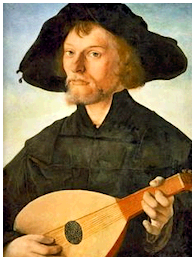What to Do and what Not to do
These are the do's and do not's for music composers. It is not a complete course in music composition. You will not find much music theory here. All I offer you is some sound advice.
---
Download this page as a clean pdf: Music Composer Do and Do not
a. Use a contrary movement if possible. Although similar movements can sound good, don't use them all the time. When possible, have one line descent if the other ascends. The more lines there are, the more you should use contrary movements. example
b. Do not be afraid to use dissonances. Some people think dissonances were invented in the 20th century, but they're not. They were already around in the Renaissance. If you only write consonant intervals, your composition will be a bore.
c. Do not be afraid to use consonances. Some people think consonances are not done in the 21st century, but they are. If you only write dissonant intervals, your composition will be a bore. Besides, consonances are natural survivors.
d. Beware of parallel fifths and octaves. They can sound nice, but beginners tend to use them by accident, especially when they are writing chords. That's one of the reasons why you should use contrary movements, to help you avoid those parallels. example
e. In general it's best to keep the most exciting part of your composition towards the end. Don't give it all away in the beginning.
f. Write the music you would like to hear yourself. Never ever write music you think someone else would like to hear, especially not critics. Trying to be modern is so old fashioned.
g. Do not work too long on a composition. Take some distance every now and then. Go out for a walk, read a book or go to bed.
h. It takes a brave composer to write in the key of C Major. You can't use a lot of flats and sharps to hide a lack of ideas.
i. Write music on a regular basis. Do not think you always have to feel inspired. Play some classical music first, if you have no idea what to write.
j. It is not the task of a performer to make something beautiful out of a pile of rubbish. Do your best on the score and do not rely on a miracle.
k. Do not think you can get away with a bad music score by calling it an abstract or funny work. You're only going to fool yourself. Make sure you know what you're doing.
l. You have to be alone, when you compose music. Being a composer is a lonely profession. If you can't stand to be alone, you should take up another profession or hobby.
m. Do not write music in a hurry. You have to feel relaxed. Don't write music at work in your coffee break. Take your time.
n. Be in contact with your inner self when you write music. It will make your music special to others.
o. If you're in need of some honest advice, then don't ask your loved ones. Go find someone who is a qualified teacher or composer. If necessary, pay for an advice. In the end you will save money.
p. Do not think that your work always has to be original. New ideas derive from old ones. Learn to master old techniques, practice them and develop yourself as a composer.
q. Don't get angry, if no one wants to play your work. Perhaps you need more study and experience.
r. If you always get stuck after a few measures, you should write small parts first. Write four measures, then take a walk. Write the next four measures. Read a newspaper. Again, write four measures. And so on, until you think you can write more music in one go.
s. Never throw an old composition away. Cherish everything you've made, but don't share it all with people other than your loved ones.
t. A long composition isn't always better than a short one. A symphony isn't always more interesting than a work for solo. You're not going to impress trained musicians by making quantity instead of quality. Write a string quartet, if you want to show off.
u. Don't be afraid your work will resemble the work of a known composer. It will always resemble someone's work.
v. Being an artist doesn't mean you have to act like a clown. You're not going to write better music by wearing a strange hat. You don't have to look like a French peasant either.
w. A good title is important, but don't overdo it. A long title for a short composition might give the audience the impression that you're trying to be funny.
x. If you really studied music theory and composition, and you know it all, then try to forget the things you've learned, otherwise you won't be able to write music.
y. You must believe that you are gifted. If you think you probably will never be any good at writing music, you should take up another hobby.
z. If you never play your own music, nor ever want to hear someone else play it, then you're not being honest with yourself.


